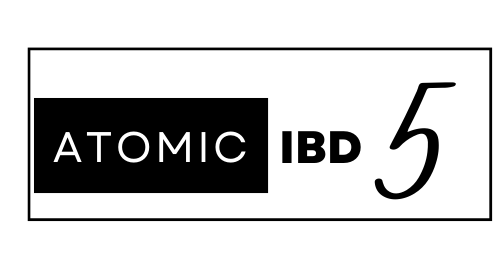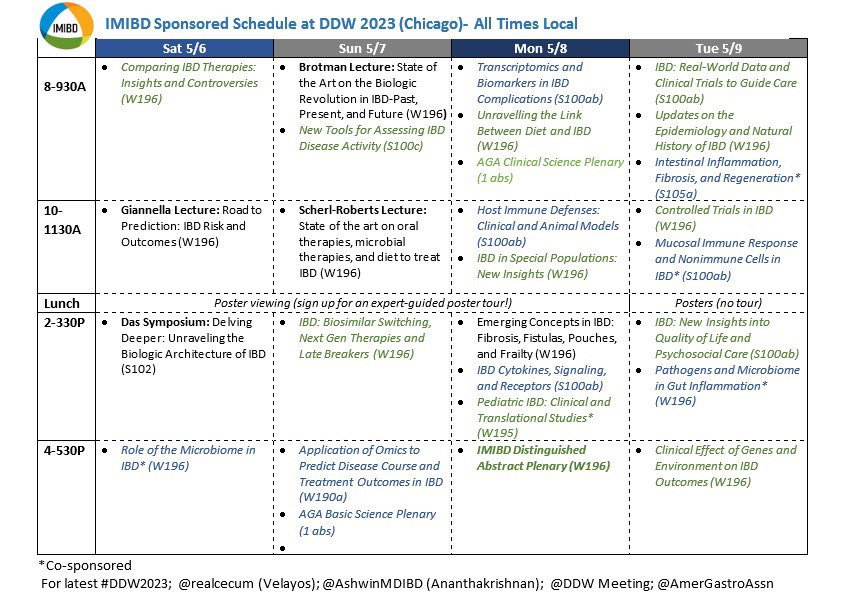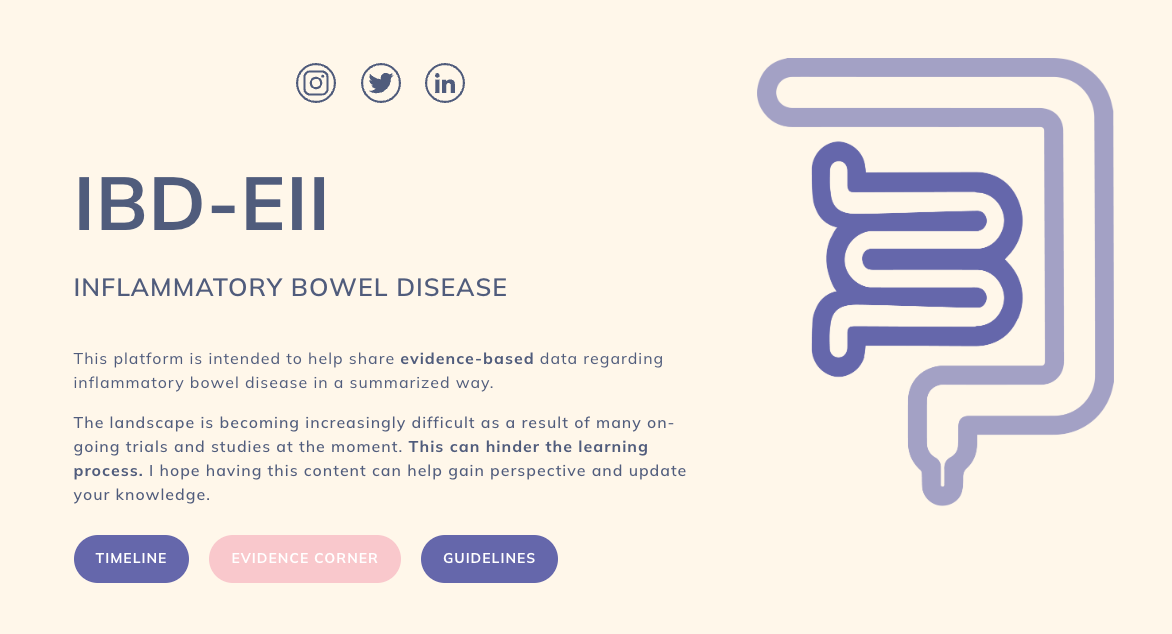The Atomic IBD 5: Your weekly dose of IBD updates
IBD events and commentaries, IBD at DDW and a clinical trials website
Welcome to the Atomic IBD 5 - a weekly roundup of things that have caught my eye from across the global IBD community.
This week’s highlights:
event: an important cross-sector event about IBD at the UK Embassy in Denmark
conference: previewing the IBD track at Digestive Diseases Week (DDW)
website: major updates to a clinical trials website
editorials: the economic burden of IBD in 1) high and 2) low / middle income countries
blog: longitudinal calprotectin profiles
EVENT: UK-Denmark Health Dialogue about IBD
Join us online for this important event on Tuesday 18th April by signing up here.
Building health data infrastructures is crucial for understanding causes, consequences and treatment options for common diseases. Denmark and the UK are home to excellent resources in the form of biobanks, large genetic-based cohorts and extensive health registries. With careful consideration, these data can be used to take genetics from disease-association to meaningful impact and start to make precision medicine a reality.
IBD is a pressing issue worldwide, affecting almost 1% of the population in both countries – twice as many living with type 1 diabetes. Globally, the problem is even more urgent as newly industrialised countries experience a rapid increase without adequate clinical and research infrastructure to deal with it.
Ongoing efforts are unlocking unique national resources of clinical and biological IBD data spanning pre- and post-diagnostic eras. Knowledge exchange and collaboration around the created infrastructures to identify shared challenges and opportunities are crucial to harnessing the power of British and Danish registries and biobanks across disease areas towards better patient outcomes.
15.00 Presentations (all times C.E.T.)
Emma Holten, Feminist Activist: The value of the individual to society and reflections on living with IBD.
Prof. Charlie Lees MD, Edinburg University, UK: The impact of IBD and the rising unmet need worldwide.
Prof. Tine Jess MD, PREDICT Centre of Excellence, Aalborg University, DK: Harnessing the power of Danish data resources to find the causes and cures for chronic illness – making the impossible a reality.
Dr. Carl Anderson, Wellcome Sanger Institute: Using large genetic repositories and next-generation sequencing to unlock the secrets of IBD.
Rebecca Cosgriff, Head of Strategy, Data for R&D, NHS England: Building an NHS Research secure data environment network for England, creating opportunities for genomics and health registries.
16.20 Discussion and audience Q&A
– shared challenges and opportunities
16.40 End of livestream
“My team and I at the Embassy host many events with very varied themes - be they political, defence or trade oriented. But also, and importantly, health related issues. So please do join us online Tuesday 18 April for a cross-sector UK-DK Health Dialogue on Inflammatory Bowel Disease and Health Data Infrastructures. This is a hugely important topic but one that is often not spoken about much. While some things may be awkward to talk about – it is tremendously important that we do so in order to learn more about how health data can support research and patient treatment.
This is a cross-sector event, gathering actors from academic and clinical sciences, health authorities, policy makers, funding agencies, patient communities and industry. We aim to raise awareness of inflammatory bowel disease (a very common disease affecting almost 1% of our population, but quite stigmatised and therefore often an isolating experience for patients) and discuss ongoing national and collaborative efforts to improve diagnosis and management of IBD. Building on recent efforts in the IBD field, we hope to use the joint Q&A session to identify shared challenges and opportunities to support the ongoing development of national health data infrastructures in both Denmark and the UK, for IBD and more widely across disease areas.”
Emma Hopkins - UK Ambassador to Denmark
CONFERENCE: Previewing the IBD track at DDW 2023
DDW is in Chicago from 6-9th May - see you there.
Thanks to Fernando Velayos (@realcaecum) for this preview of the IBD track:
5 State of the Art Symposia
9 basic science abstract sessions
13 clinical science abstract sessions
550+ IBD posters
WEBSITE: major update to clinical trials site
The IBD clinical trials website (IBD-EII.com) has had a major update.
The site now contains IBD Guidelines from across the world, paediatric IBD clinical trials and an evidence corner where you can search trials by therapy.
The phenomenal Beatriz Gros has developed this resource single handedly.
Head over to the website (IBD-EII.com), sign up to the newsletter and give Bea a follow on Twitter (@Bealoquebea) and Instagram (@dr.beatrizgros).
EDITORIAL: The economic burden of IBD
By Rob Brierley (@rob_brierley) - Editor in Chief at Lancet Gastroenterology and Hepatology.
The editorial accompanies a commission by the journal on the cost of IBD in high-income settings (full paper).
“The aim of the Lancet GH commission on the cost of IBD in high-income settings was to examine the current costs of care for IBD and the drivers involved in the increasing economic burden, and to explore means to deliver affordable, equitable care for those with IBD in the future.”
It is notable that the commission does not cover low and middle income countries.
Here the rise in IBD incidence is the steepest. It is here that 78% of the world’s population lives. And it is here that the majority of IBD patients will reside in the future.
As a counter-point, I therefore highly recommend the excellent commentary by Rupa Banerjee - Managing IBD: what to do when the best is unaffordable?
Rupa and co-authors points out the enormity of the challenging facing those managing IBD in much of the world:
IBD in most low-income and middle-income countries is not considered to be a public health burden. As a result, there is poor access to adequate health care and colonoscopy services, and poor physician and patient awareness of IBD, particularly in primary care settings. Furthermore, there are large disparities in wealth, income, and affordability, with the majority of these populations having no health insurance and paying out-of-pocket expenses in the absence of public health funding. The management of IBD in these low-resource settings is a delicate balance between accessibility and affordability.
They go on to discuss some of the low-cost therapeutic options:
sulfasalazines can be a cheaper option than mesalazine
when the best biologic is unavailable or unaffordable, cheaper options should get preference
biosimilars with similar efficacy can be the most cost-effective option
oral generic tofacitinib could be the first choice before biologics for steroid and immunomodulator refractory ulcerative colitis
in acute severe ulcerative colitis that is not responding to intravenous steroids, intravenous ciclosporin would be the drug of choice
And make a pertinent point to focus now on prevention strategies
Western lifestyles and diets are implicated in the development of IBD.
An epidemiological transition is underway, with a rise in non-communicable and lifestyle-related diseases like obesity, diabetes, autoimmune disorders, and IBD.
Low-resource health-care systems may struggle to provide treatment for IBD, making preventive strategies crucial.
Regulatory practices and government policies can help reduce the consumption of packaged foods, emulsifiers, and preservatives.
Increasing awareness of environmental triggers of IBD among schoolchildren and the public can encourage early adoption of healthy lifestyles.
Preventive strategies, including government policies and regulatory practices, are needed to reduce the incidence of IBD and other chronic diseases.
BLOG: Calprotectin trajectories and Crohn’s disease
Nathan Constantine-Cooke (@IBDNathan) has written an excellent blog post (Are There Groups of Crohn's Disease Patients with Similar Faecal Calprotectin Patterns Over Time?) describing the first major phase of his work on faecal calprotectin trajectories in IBD.
We are pursuing this work in expanded cohorts to:
further describe the disease heterogeneity in IBD patients,
provide a more meaningful measure of disease prognosis, and
to develop a clinical decision support tool to personalise therapeutic strategies.
Read the full open access paper here: Longitudinal Fecal Calprotectin Profiles Characterize Disease Course Heterogeneity in Crohn’s Disease








